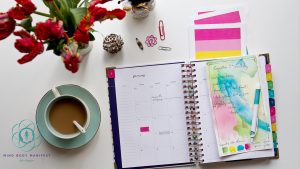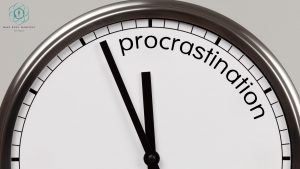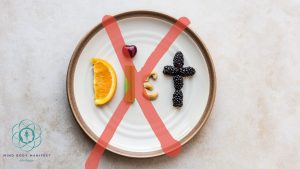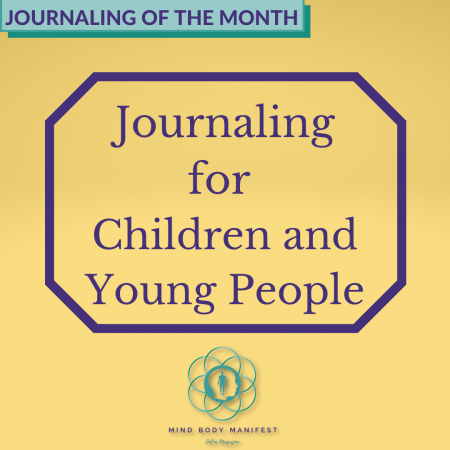
There has been more and more awareness put on our mental health over the last few years, a movement which is growing and making talking about, and asking for help with, your mental health more acceptable. Thank goodness!
We know how difficult it can be for an adult to recognise when and how to get help and it must be so much harder for children. Children experience mental and physical health too, as we all do, but they don’t have the advantage of life experience and having an understanding about what is happening to them. It’s easy to potentially assume children don’t have anything to worry about and dismiss any problems that may arise.
According to Place2Be, 1 in 6 children and young people have a diagnosable mental health problem and many more struggle with challenges from bullying to bereavement.
As an adult who has struggled with her mental health for too many years to remember, this is a subject close to my heart and one I feel we can all advocate and change, reaching as many people as possible. It’s a tricky world we’re in and navigating it can be difficult, without the extra hormones. I’m sure we all remember how it felt to be a child and teenager trying to learn the social rules, to fit in but also to work out who we are and what we want.
I kept a journal from a young age, around 11 or 12, which when I look back was a vital outlet to many things going on in my life – from my parents’ divorce to unrequited love and regular falling in and out with friends. I struggled with a lot back then, without having my journal to unload a lot of confusion and thoughts out I probably would’ve struggled a lot more.
This month I am going to focus on how journaling can help any young people in your life. As adults we understand and experience the benefits we receive from journaling, if we can help youngsters get into this regular practice now – it will provide them with a transformational and supportive tool through the ups and downs of life.
Through journaling, they will be able to experience all the benefits that adults do, such as relieving stress and anxiety, boosting the immune system, mental and physical health but here are five important life and education skills they can develop too.
Improves Communication Skills
Writing in their journals will help them to express their thoughts, feelings and emotions. It helps to process them and to find their voice. Working through thoughts and feelings will give them an understanding of themselves, boosting their confidence on who they are and how to express what they want to say. An important life skill for us all! They will begin to find it easier to put their wishes, thoughts and opinions into words, improving their communication skills with peers, parents and teachers.
Strengthens Writing Skills
The more they write for enjoyment, the more they will do it and take away the dread of having to write for school. This will lead to finding different ways to explore how to express themselves in written form, helping their academic success as they are able to express their ideas more clearly in written reports, essays and exams.
Encourages Creativity
Writing freely and working through their thoughts will stimulate more creativity and ideas to emerge. They will start thinking “outside the box” as they explore ideas and learn to develop and make adaptations to find solutions.
Improves Comprehension
As they reflect on their journaling, they will start to learn how to interpret writing from different perspectives and understand the meaning in the words.
Improves Attention to Detail
Regularly writing about situations and events will create the need to include lots of information! Recalling details in their journal will develop their recall skills so they don’t miss anything, helping to develop their observational skills in their daily life too.
Journaling can start at any age; it is something you can do together as well.
For younger children you may like to start with one of the following –
Nature Journals – These are a fun way to get into journaling with young children. You can combine it with a mindful walk, collecting leaves or other natural items and noting things you see such as flowers, birds and insects. Use the journal to capture all these wonderful items you’ve seen through writing and drawing, gluing in photos you take or items you pick up. It’s a lovely way to record your time together.
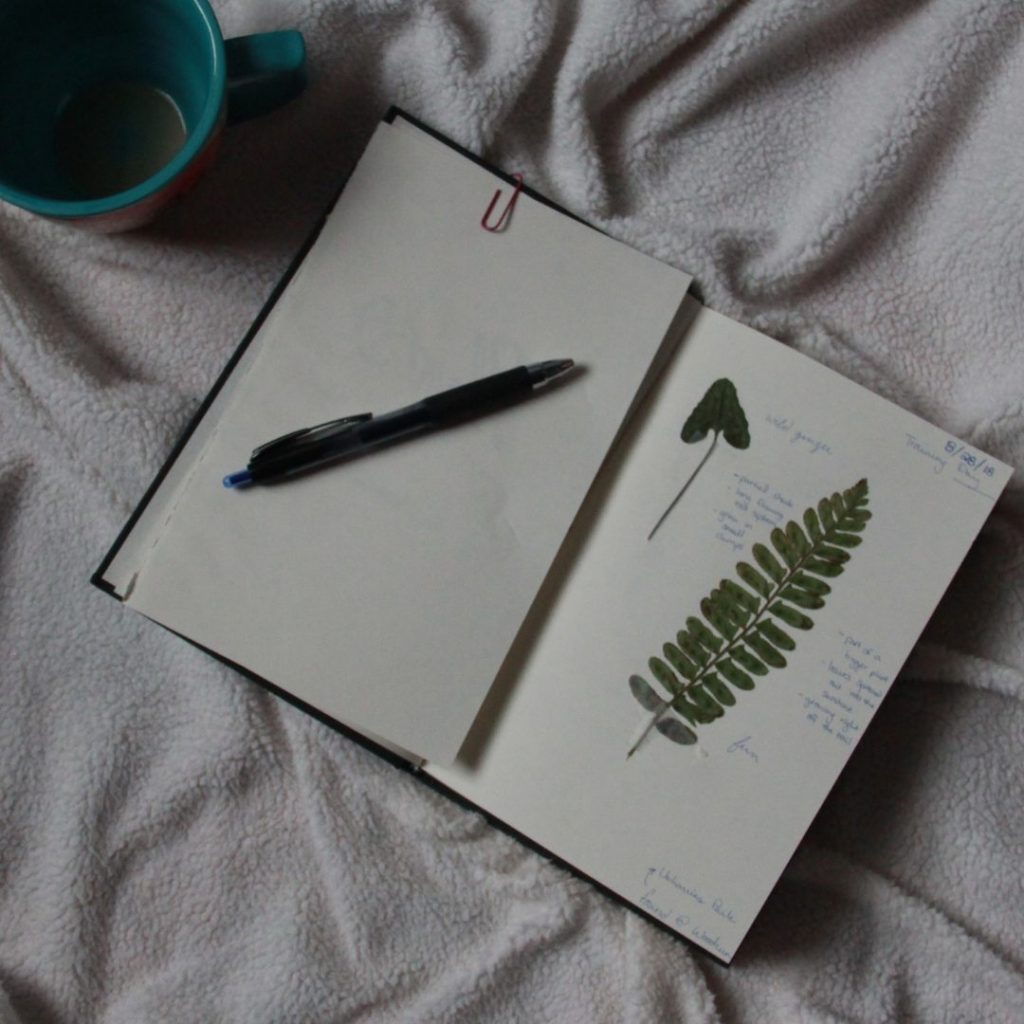

Holiday Journal – A fun way to start the practise of journaling can be to keep a holiday journal, noting places you go, things that are seen, experiences you have, things you do and capturing all the details of a holiday – whether at home or going away.
Art Journal – A good quality book with thicker paper is best for this so you can use a whole range of art materials to get creative. Instead of expressing themselves through words, they can draw, doodle, paint and use different materials to express themselves through art.
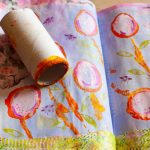
For older children and teenagers, there are a few more options –
Personal Journal – These can be empty notebooks, either lined or plain paper. This is where they write freely about their day, events, thoughts and feelings and a place to really look at these in more detail. A safe space for them to explore who they are and what is happening to them in their world. However, an empty page can be very daunting and difficult to know how to start so there are some printed journals available to help. These can start from as young as 6 years and up to teenagers and are a great way to get into a habit of writing, as many have just short prompts and activities to do each day.
Creative Journal – This is a space for brainstorming and noting inspirational items. It’s less about working through thoughts and feelings but more a space for a collection of ideas. These are great for developing creativity when it comes to school projects and coursework.
Junk Journals – These are handmade books of recycled and random found materials, all put together by the journaler. You make yourself a book and then use this to write, draw, use stickers or glue in items that are memories, thoughts and ideas or inspiration. They can get quite chunky! As everything used in junk journals are always found or being recycled, they are sustainable and incredibly unique and random!

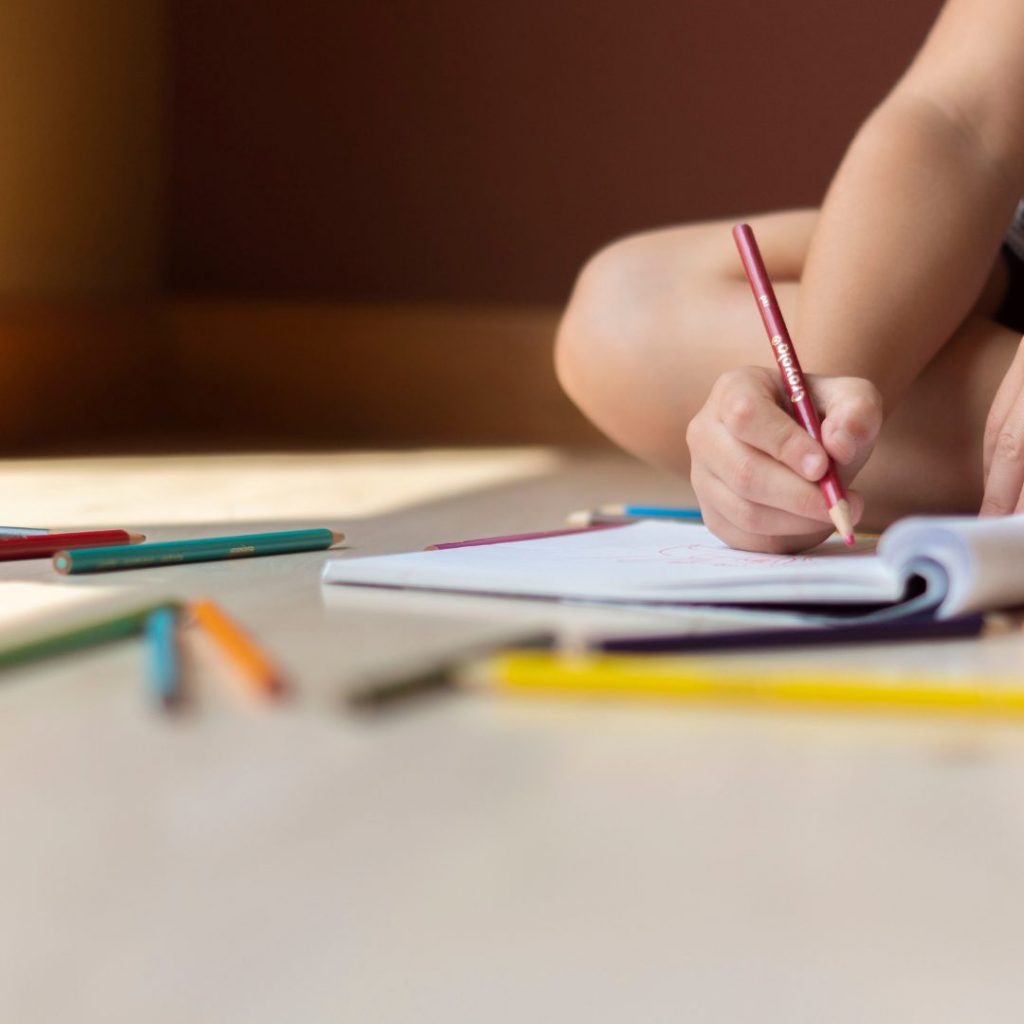
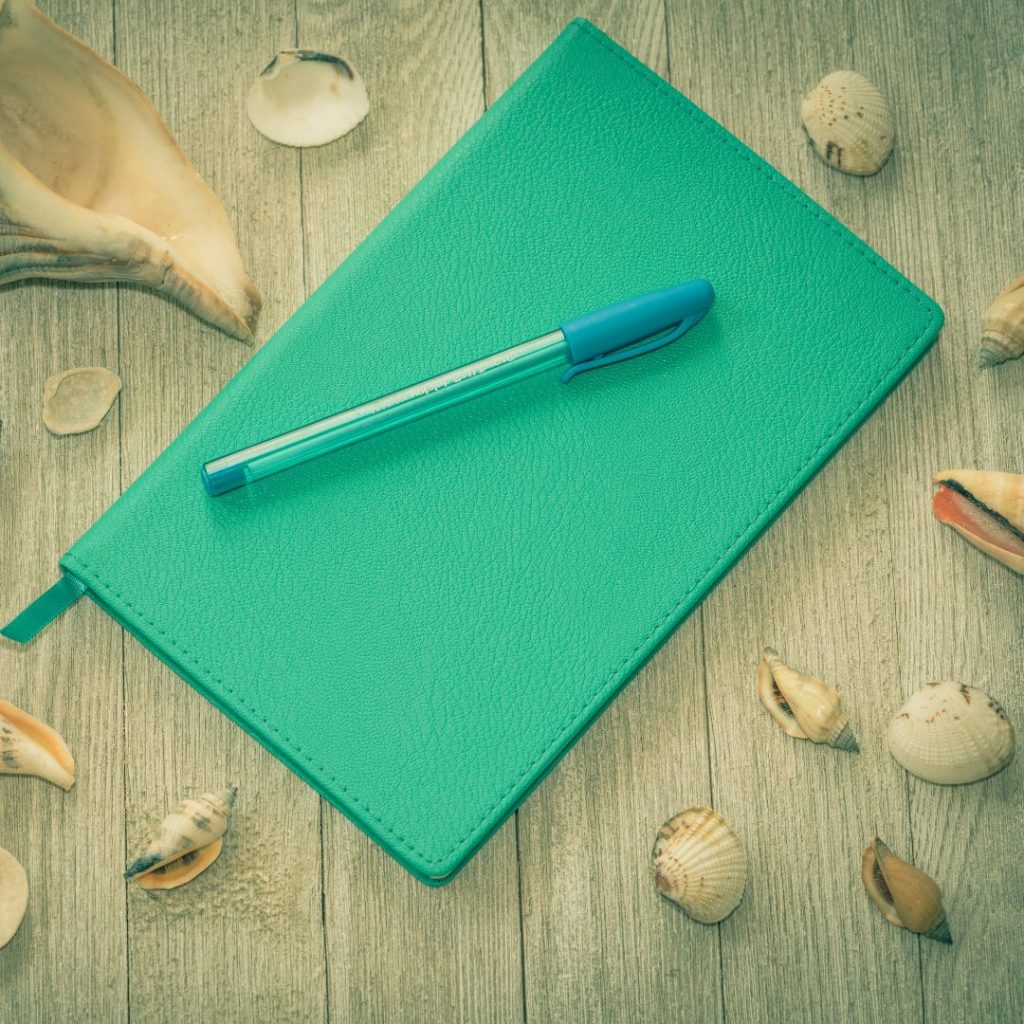
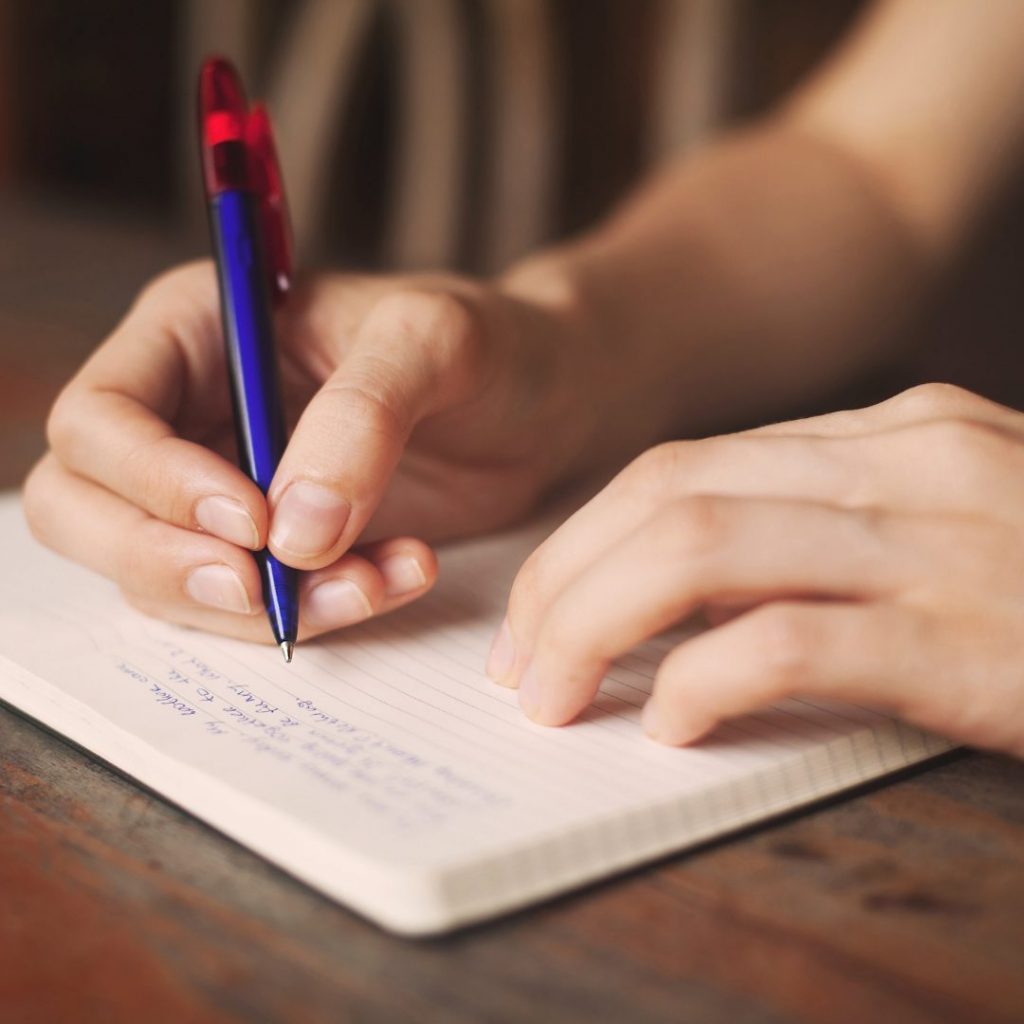
If you want to encourage your youngster to try journaling, make it fun and let them lead. Take them shopping so they can choose the journal and pens they want to use and encourage them to try different ways to journal. Journaling is as unique to them as it is to you.
Most importantly, remember privacy is vital. They need to know that their journal is their safe space without having the worry of someone reading it. Ideally, have somewhere they can lock it away so they can use it openly and honestly without fear of judgement, ridicule or upsetting anyone who may read it.
Finally, let them see you journal! Children like to follow in their parents’ footsteps, so show them it’s a worthwhile thing to do. Try setting some time aside each day to quietly journal together. You may find they want to share anything that’s come up for them with you when you finish, so is a great way to open discussions.
Claire is an experienced and qualified Life Coach and Journal Therapist. Following years of depression, she created the person she wanted to be through being coached and journaling.
She combines the power of coaching with the power of journaling to support women on a life changing journey of self-learning and self-awareness. Knowledge is power and learning about yourself, warts and all, is so vital to personal growth, confidence and high self-esteem. True empowerment comes from within!
Claire works with women in a variety of ways, including one-to-one, running group guided journal workshops and two journal support memberships, one for personal life and one for business life.
Originally from Southampton, Claire currently lives in the Midlands with her husband, sons and crazy Spanish rescue dog. Fun fact – Claire is a qualified FA football coach and is Chairperson for a local football club, helping them to run nearly 40 teams. She is particularly passionate about encouraging and growing girls and women’s football!
Contact Details
Email – claire@brightrainbows.co.uk
Website – www.thejournalvibe.co.uk
Facebook – www.facebook.com/thejournalvibe
Instagram – www.instagram.com/thejournalvibe/
Why not join Claire’s free journal community on Facebook? https://www.facebook.com/groups/tjvcommunity



